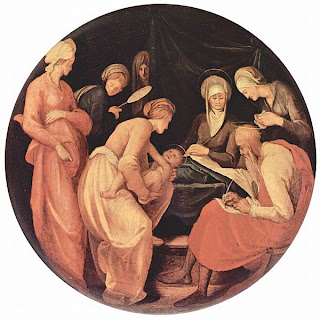Semper Fidelis
Always Faithful...
to what?
God, Country and Corps (my fellow Marines)
He is a utterly simple guy, my old friend Rob.
He took me to Church one time when we were home on leave to his home
parish in the Bronx. I am eternally grateful for this.
A couple of years ago my brethren gave me strict
marching orders, find Rob. You see we had lost contact with our good
buddy and this circle of friends, all Marine yearned for knowledge.
I had last seen him at his wedding in 1995, to the
beautiful Kiara. I have fond memories for that day for it was the first
and only time in my life, since and ever that I wore my dress blue uniform as a
Captain. You see I received my promotion while off active duty so I had
no occasion dress in the blues.
The time before I saw Rob while we (our units)
relieved each other on a "combat" mission. Rob saw real combat,
later during several tours in the middle-east. The place where we met
this time was relatively benign (I was spared real combat as a Marine,
Deo Gratius). That was in the summer of 1990.
When Harvey from Boston called me to find Rob from
the Bronx, the Bostonian being my most ancient USMC buddy, he knew I would and
could. Harv remembered that I found him once before, early in the second
Gulf war (2002).
That time I had little to go on. After Rob and Kiara settled in to
suburban New Jersey, I lost contact. I did remember Rob's father Norbert
was an attorney in Manhattan so I tracked my buddy down through his pop. Rob
has a unique last name, to protect his privacy lets call him Rob
"Hanger".
Norbert was a lawyer in a law firm with some other family members, called "Hanger, Hanger and Hanger." Not a good name for criminal defense, but I digress.
When I spoke to Mr. Hanger, Esquire I asked how Rob was doing. He said, "I do not know." Surprised and somewhat alarmed, searching for words I sputtered out, "Well, when was the last time you spoke to him", gripping the phone white knuckled. Pop said, "I think about a month ago."
Not really nervous, I just let it come out. "Where is he?"
In Baghdad, fighting with the 1st Marine Division trying to liberate the city.
Wow. I had my answer and not a happy one.
As I said, this was the first of two times I was tasked to find Rob.
The second time was much more recently. About 3 years ago we lost contact with Rob again. This time we were reasonably sure he was back in metro New York. We were wrong.
Keeping up with the times, in the summer of 2009 I "googled" Rob Hanger and found his Curriculum Vitae listed in a prominent New York law firm complete with his email address. I was glad.
I innocently emailed Rob late one hot Friday night in July and expected that I would receive a response within a few days or a week. We had much to catch up on. The Marines guys had moved on in life, many now married with children and I was studying for the priesthood, finding my vocation, my unique call to holiness as well.
Saturday morning I was shocked. I had a response from Rob already. On first sight I assumed he was being simply and innocently a "workaholic" getting some paperwork out of the way at home or in the office.
I was wrong. Rob was writing me from deep inside Iraq, now a Lieutenant Colonel advising the Iraqi military. One final tour in a very dangerous place.
I will not reveal the content of that email but my good old friend gave me a strong impetus to bring his needs to prayer. You can infer that a Father of 4 children, 8000 miles away from the love of his life in real combat was second guessing some of his career minded decisions (perhaps).
Marines back Marines. Now and as long as we are blessed to be part of the big green gun club (which is always, as you know-- Once...USMC....always....USMC).
I prayed about how I could help and from prayer came prayer.
Being in the seminary at the time, I had not yet had the privilege to celebrate Mass, nor offer Mass for the intentions of another. Most of you know that nearly all public masses are offered for the intentions of another.
So I made some crude "xeroxed" memos up and asked many priest, even our good Diocesan Bishop to say Mass for Rob and they did.
The Eucharist. This is the key, that is our bread of life that any good, any struggling Catholic must accept as our key to salvation. Somehow, through prayer I knew that this could help Rob, Kiara and their family in need at that time.
Today our Lord teaches us in the Gospel that we must believe in him as the bread of life. I encourage you to enter into this mystery that we must receive first, and then immerse ourselves into. It is our call to eternity.
(Today, Rob and Kiara are together and safe at home, living out their unique vocation as husband/wife and mom/dad and good responsible contributors to their community).





